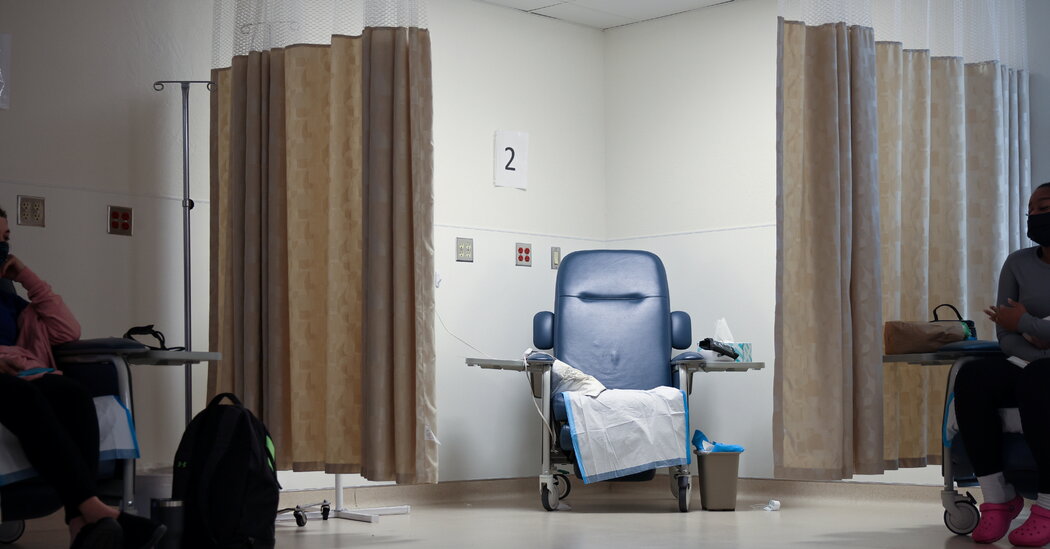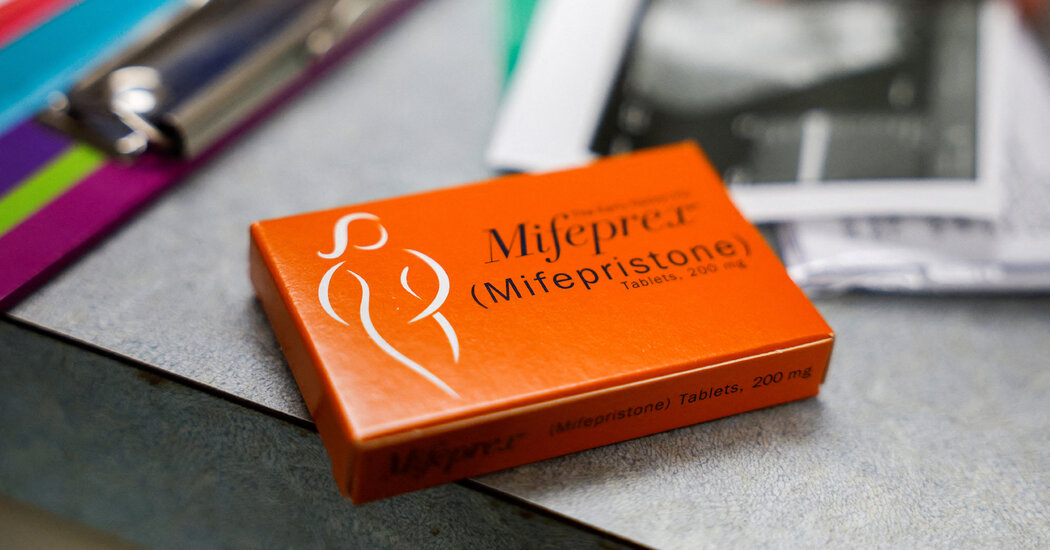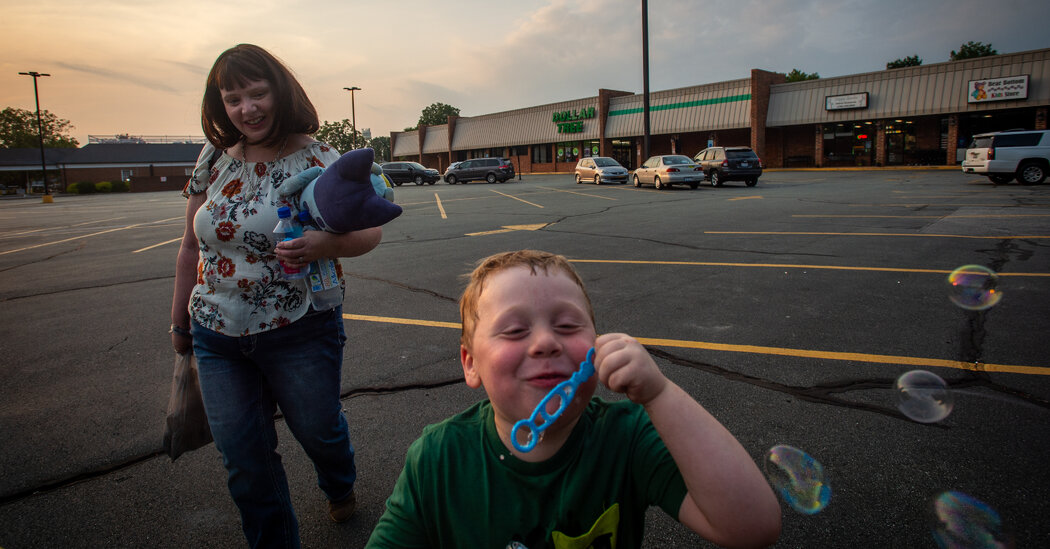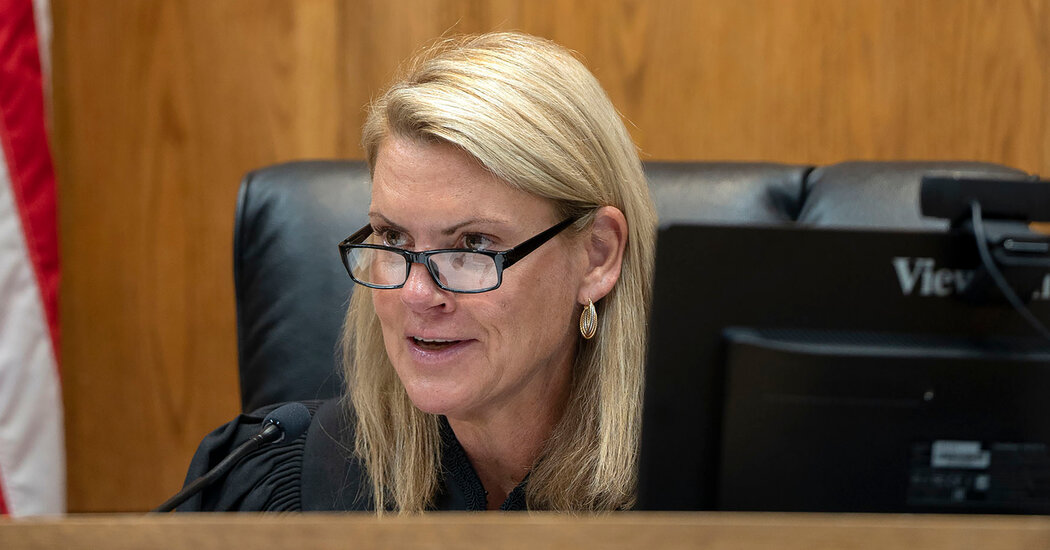Legal Actions Seek Guarantee of Abortion Access for Patients in Medical Emergencies
New cases say fear and confusion about abortion bans in three states are causing doctors and hospitals to deny medically necessary abortions.Early in her pregnancy, Jaci Statton was in her kitchen when she felt like she was going to pass out and saw that her jeans had become soaked with blood. Doctors told her the pregnancy was not viable and that it could threaten her life if an abortion was not performed soon, she said.But Ms. Statton lives in Oklahoma, a state that bans most abortions. Three hospitals declined to provide the procedure, she said. At the third, “they said, ‘We can’t touch you unless you’re like crashing in front of us,’” Ms. Statton, 26, said in an interview. The hospital’s only suggestion, she said, was “we should wait in the parking lot until I was about to die.”On Tuesday, Ms. Statton filed a legal complaint with the U.S. Department of Health and Human Services asserting that the third institution, Oklahoma Children’s Hospital, had violated a federal law that requires hospitals with emergency departments to provide abortions in urgent situations, regardless of state abortion restrictions.Her case is part of several legal challenges filed Tuesday involving patients and doctors in three states — Idaho, Tennessee and Oklahoma — who claim that those states’ abortion bans are preventing women with serious pregnancy complications from getting abortions, even in cases where the medical need is clear.The cases, filed by the Center for Reproductive Rights, a legal advocacy organization, represent a broadening of legal strategies that abortions rights groups have initiated in recent months, after last year’s Supreme Court decision overturning the national right to abortion.Jaci Statton and her husband, Dennis, before her pregnancy.Rachel Meagan PhotographyWith 14 states to date enacting laws that outlaw most abortions, some abortion rights advocacy groups are focusing on cases involving patients with desired pregnancies that developed serious complications or abnormalities. The cases don’t seek to strike down the bans but instead to gain legal clarity ensuring that patients in these situations should be exempt from state abortion bans.The groups argue that the vague wording in the laws and the widespread confusion and fear among doctors that they could be prosecuted or penalized, has resulted in the denial of care, with sometimes dire consequences to patients’ health or ability to become pregnant in the future.One legal strategy, initiated earlier this year with a lawsuit filed against the State of Texas on behalf of patients and doctors, seeks clarification about state abortion restrictions to allow doctors to terminate pregnancies for patients with medical emergencies or severe fetal anomalies. The lawsuits filed Tuesday against Tennessee and Idaho echo that approach.Another strategy — invoked in Ms. Statton’s case — asks the federal government to investigate hospitals that have denied abortions to patients with medical emergencies in states with abortion bans. This spring, in a first-of-its-kind action, the federal government told a hospital in Missouri and another in Kansas that they had violated the federal law, the Emergency Medical Treatment and Labor Act, or EMTALA, when they denied an abortion to a woman whose water broke 17 weeks into her pregnancy. That law requires hospitals that receive Medicare funding and have emergency rooms to provide treatment including abortions if necessary to stabilize patients. Ms. Statton’s complaint asks the federal agency responsible for enforcing EMTALA, the Centers for Medicare & Medicaid Services, to investigate Oklahoma Children’s Hospital and issue a finding that it violated that law. The potential consequences include fines and exclusion from Medicare funding.OU Health, which includes Children’s Hospital, said in a statement: “Our health care complies with state and federal laws and regulatory compliance standards.”The Centers for Medicare & Medicaid Services did not provide a comment.In a news conference on Tuesday, leaders of the Center for Reproductive Rights said that the limited exceptions in state abortion bans were written with terminology doctors do not use and that they made it unclear when doctors might be at risk of punishment.“What these laws are forcing physicians to do is to weigh the very real threats of criminal prosecution against the health and well-being of their patients,” said Nancy Northup, the group’s president.Officials from two anti-abortion groups said that state abortion bans already allowed exceptions in life-threatening emergencies and that abortion rights advocates were trying to sow confusion. Dr. Ingrid Skop, vice president and director of medical affairs at the Charlotte Lozier Institute, said that although she never performed elective abortions, “there have been times I have needed to separate a mother from her unborn child in order to preserve her life in an emergency.”In the Texas case, after a hearing in July in which several women gave tear-filled testimony, a judge issued a temporary exemption to the state’s abortion ban that would allow patients with serious pregnancy complications to obtain abortions, but the exemption was blocked when the state immediately appealed. The case is scheduled for trial next year.The lawsuits filed Tuesday against Tennessee and Idaho — which include eight patients, four doctors and an Idaho medical organization — not only ask for clarification about which situations qualify as medical emergencies eligible for abortions but also ask the states’ courts to expand the exemptions so that pregnancies with lethal fetal anomalies can be legally aborted.The plaintiffs in the Tennessee case include Nicole Blackmon, who said she was 15 weeks pregnant when she learned that the fetus had a fatal medical condition. Tennessee’s abortion ban does not include exceptions for severe fetal anomalies, so she could not receive an abortion in the state. Ms. Blackmon could not afford to travel to another state, and at seven months into her pregnancy, after her health was worsening, gave birth to a stillborn baby, she said at Tuesday’s news conference.“That law forced me to carry a baby for months that was never going to live and easily could have killed me,” said Ms. Blackmon, who said that shortly before she became pregnant last year, her 14-year-old son Daniel was killed in a drive-by shooting. “I was left with waiting to lose another child in the same year,” she said.Tennessee’s attorney general’s office said it had not yet received the center’s lawsuit and will review it when it does.In Oklahoma, Ms. Statton, a mother of three, first went to a local Catholic hospital, which told her she was having a miscarriage. The next day she visited her obstetrician-gynecologist, who determined that she had a partial molar pregnancy, a condition in which an egg has been fertilized by two sperm, creating an embryo with too many chromosomes, which cannot survive. The condition can cause the development of precancerous sacs or cysts in the uterus, which can rupture and cause severe bleeding or can develop into cancer.Ms. Statton said the doctor told her “it will get worse” unless she had an abortion to remove the tissue, but because the hospital was Catholic, the doctor could not perform the procedure.She transferred Ms. Statton to University of Oklahoma Medical Center, about an hour away in Oklahoma City.There, Ms. Statton, who was about nine weeks pregnant, said doctors told her she should have the abortion immediately, but an ultrasound technician told them that they could not provide it because fetal cardiac activity could still be detected. “They were arguing with the ultrasound tech,” Ms. Statton said, and the doctors ultimately “came back in the room and said ‘We can’t.’”They transferred her to Oklahoma Children’s Hospital, part of the same health system, saying that it had specialty care that might allow it to treat her. When staff at that hospital said they could not provide an abortion until her condition became worse, her husband began to cry, saying, “‘I’m going to lose you, I’m going to lose our baby,’” Ms. Statton said.They drove 180 miles to an abortion clinic in Kansas, afraid that on the way her condition would deteriorate, Ms. Statton said. The clinic performed the abortion. Soon after , Ms. Statton decided to have a tubal ligation to prevent future pregnancies and she recently began taking antidepressants for the first time, she said.Ms. Statton said that when her state banned abortion she didn’t think about it much because “I would keep my baby so I wouldn’t need that.”Now, she said, “I just want other women to know that if they go through something like this, they’re not alone and it’s not their fault.”
Read more →









